In its environmental statement, Bryn Bach Coal Ltd attempts to present the anthracite coal it wishes to extract from an expansion of Glan Lash as a unique and scarce commodity that is needed for water filtration, bricks, and graphite, and would therefore be too valuable to burn. Yet, visiting Energybuild Ltd’s website will demonstrate that anthracite coal is currently being produced in large quantities at Aberpergwm. It is this coal that Bryn Bach Coal Ltd currently washes and sells to both burn and non-burn customers. This proves that Glan Lash anthracite coal is not unique or scarce, and just because it is of a carbon-content suitable for water filtration does not prevent it being also sold for combustion. Indeed, anthracite coal from Aberpergwm is also currently sold to heat greenhouses in the Netherlands to grow tomatoes into the cold season, according to Energybuild Ltd’s website.
For example, the three local water filtration companies that Bryn Bach Coal Ltd refer to are listed as customers on Energybuild Ltd’s website, along with Ibstock Ltd, the brick manufacturer, which Bryn Bach Coal Ltd claim would buy its Glan Lash coal. Therefore, coal supplied to any of these customers from Glan Lash would compete with coal from Aberpergwm, which could instead be supplied to combustible uses (as the High Court has confirmed that the displacement argument with coal are fallacious as coal is simply sold to different markets). It is also unlikely that separation would be maintained between anthracite coal from Glan Lash and anthracite coal from Aberpergwm, rendering record-keeping on respective customers a fiction.
In light of the local demand for our anthracite and letters of intent for supply we are able to ensure that 100% non-thermal-non/fossil fuel use will be achieved should planning permission be granted. This can be monitored by submission of yearly declarations from our customers stating tonnages purchased and its end use. It would not make economic sense for Bryn Bach Coal Ltd to change market strategy as poorer quality cheaper anthracites can be used as a fossil fuel. It can therefore be stated that this is not a fossil fuel application as the anthracite will not be used as an energy source this is an application to mine a mineral. P23
“Letters of intent for supply” can be binding or non-binding. As Bryn Bach Coal fails to specify which it has, we must assume it is “a non-binding letter of comfort” which “are merely expressions of hope” – ERDC Group v Brunel University [2006] EWHC 687 (TCC) – HH Humphrey Lloyd QC at para [27]. We understand that, without planning permission, Bryn Bach Coal Ltd may be unable to obtain binding letters of intent or contracts, but the fact remains, that its so-called ‘letters of intent’ therefore amounts to nothing more than pillow talk.
Bryn Bach Coal Ltd will know that there’d be no consequences for its planning permission if it supplies Glan Lash coal to its existing customers for home heating and other combustion uses. Section 106 agreements cannot control or monitor customers or customers’ use of the coal. Bryn Bach Coal Ltd also cannot predict the market volatility over the next 6-7 years affecting its various customers, and their demand for anthracite coal. Just as Bryn Bach Coal Ltd currently supplies anthracite coal to fossil fuel customers, it is likely to do so again with Glan Lash coal should the market conditions make it favourable to do so.
This exception has been accomplished firstly as Bryn Bach Coal Limited being the largest supplier of anthracite to the British brick manufacturing industry. Between 0.5-1.0% anthracite is used in the clay mix within each brick to react with the clay and add colour & carbon should the clay require additional carbon. This use as a brick colourant means the anthracite is not burnt and therefore does not release CO2 into the atmosphere... Ibstock Brick PLC is a long-standing customer and we have been supplying anthracite since 2005. A letter of support has been included and it must be noted that with the UK Government pledging to build 1.5 million new homes demand for bricks will undeniably increase. P24
Ibstock’s kilns fire bricks at heats exceeding 1,000c – and Energybuild Ltd, which operates Aberpergwm coal mine, confirms “The coal does combust…”, so the EIA’s claim that the anthracite is not burned or released CO2 appears to be ostensibly false, again throwing into question the credibility of other claims around the proposed consumption of coal from the Glan Lash expansion. Our research also suggests that anthracite is not required to “react with the clay”, and therefore invite Bryn Bach Coal Ltd to reference their claim. Furthermore, it may be that there are suitable alternatives to anthracite as a brick colourant, given the range of minerals used to currently produce different colours; “the body colour is largely dependent on the clay type, however, variation can also be achieved through methods such as body staining, surface sanding, staining or altering firing conditions” – Brick Development Association, 2023. The necessity of anthracite coal for British brick production is far from clear so should not be a material planning consideration until Bryn Bach Coal Ltd is able to substantiate its claims with accurate references, as we have.
Secondly Bryn Bach Coal Limited is a supplier to the water filtration industry where the anthracite is used as a filter medium in the water industry, the anthracite from the original Glan Lash site supplied three local Ammanford based Filter Media businesses. The anthracite is used in filter beds to purify drinking water, in de-salination plants and in sewage beds. Again, the anthracite use is non-thermal and does not release CO2 into the atmosphere. There are 3 Ammanford based filter media manufacturers and jointly employ over 100 people. The 3 filter media manufactures are long standing customers and with Celtic Energy having ceased operations there is a desperate shortage of premium quality anthracite. Letters of support annexed to this report. P24
These three filtration companies are currently being supplied by the large Aberpergwm deep coal mine which has permission to mine 40 million tonnes more anthracite until 2039 and which describes its own coal as a “source of high-grade anthracite” – again proving false the claim that “there is a desperate shortage of premium quality anthracite”. The reference to Celtic Energy is even stranger, since the four mines operated by Celtic Energy produced largely thermal coal, not anthracite. We respectfully suggest that this whole section of the EIA (as amended in Nov 2024) is revisited by Bryn Bach Coal Limited.
Even if the coal is not burned, the mining of coal releases methane into the atmosphere with a far higher climate change intensity than CO2. According to Veolia, industrial water treatment contractor, “quartz sand, silica sand, anthracite coal, garnet, magnetite, and other materials may be used as filtration media. Silica sand and anthracite are the most commonly used types.”. The existence of alternatives to anthracite clearly exist and should be encouraged, given the methane dimension of anthracite and propensity for it to also be sold for combustion, once mined – just as Aberpergwm anthracite coal is currently. Maintaining and increasing the supply of anthracite coal ‘locks in’ the water filtration industry to rely on anthracite rather than invest in improving its less harmful alternatives.
“Developing markets for non-thermal-non fossil fuel uses are emerging especially using anthracite as a substitute for graphite which is a critical mineral essential to achieve Net Zero by 2050 (Glan Lash anthracite has 92% fixed carbon, natural graphite has 100% fixed carbon). The demand for graphite will increase from the current 1.6m tonnes per year to 8m tonnes per year if we are to achieve Net Zero by 2050 (World Bank 2020). The International Energy Agency estimates a 400% increase in graphite production will be required by 2040.”
Again, Bryn Bach Coal Ltd’s claims of non-thermal are misleading. Anthracite wouldn’t be used to fuel graphite heating as a fossil-fuel, but it certainly would be heated to extreme temperatures of 1,000c for ‘baking’ and up to 4,000c for ‘calcination’ to remove impurities making up 8% of the anthracite and stabilise the graphite end product. This would release greenhouse gasses in a similar way to if it were burned for household heating – there is little to distinguish between the two end uses in terms of climate change impact.
It should also be clarified that Anthracite wouldn’t be a substitute for graphite as such, it would be used to manufacture synthetic graphite – being one of several suitable carbon-heavy materials). But natural graphite and scrap graphite can also be used. Furthermore, the UK doesn’t manufacture any graphite – therefore, the anthracite used for this purpose would be exported abroad, undermining further Bryn Bach Coal Ltd’s arguments around saved travel emissions. Demand in the UK is also relatively low “UK is a small net importer of natural and synthetic graphite”.
“The importance of Anthracite has been highlighted in the European Union’s publication Sustainable EAF Steel Production and describes how Anthracite will still be required after this transition and how it will play a vital role as a foaming agent and a carrier of carbon in this type of Steel Production process. Tata Steel at Port Talbot will require Anthracite when the Electric Arc Furnaces start producing steel.”
Bryn Bach Coal Ltd’s EIA statement neglects to mention that the study it refers to is over a decade old (2013)…and concludes the very opposite of what this Bryn Bach Coal Ltd purports it to: “The results obtained have demonstrated the technical feasibility of the approaches used while the economical evaluation has showed the sustainability of replacing the coal with char from biomass, in addition to environmental benefits due to CO 2 reduction, even if at the moment there is not a real assessed market of charcoal for steelmaking purposes” - European Commission: Directorate-General for Research and Innovation, Echterhof, T., Baracchini, G., Pfeifer, H., Griessacher, T. et al., Sustainable EAF steel production (GREENEAF), Publications Office, 2013, https://data.europa.eu/doi/10.2777/44502.
A more recent follow-up study commissioned by the EU from the same authors reinforces the 2013 report findings “Industrial trials of EAF charging confirmed the feasibility of coal substitution and outlined the relevant process aspects.” And “The best slag foaming, comparable with the pulverised fossil coal injection has been obtained with virgin biomass. Outlined energy saving with EAF equipped for post combustion and tailored char production form low grade biomass showed that char utilization is economically sustainable.”
The misleading referencing and unsubstantiated claims made throughout this section of the EIA undermines the credibility of Bryn Bach Coal Ltd’s EIA overall, and should prompt Carmarthenshire Local Planning Authority to fact-check all claims made within it.
“The Glan Lash Revised Extension provides an opportunity to calculate a definitive amount of C02 emitted by the additional transportation requirements when importing the replacement tonnage of anthracite from China or Columbia…
Glan Lash Revised Extension tonnage=84,896 tonnes x 0.611t of C02 per imported tonne= 51,871 tonnes of additional C02 through importing anthracite from China compared to mining anthracite at the Glan Lash Revised Extension.
Glan Lash Revised Extension tonnage=84,896 tonnes x 0.231t of C02 per imported tonne=19,611 tonnes of additional C02 through importing anthracite from Columbia compared to mining anthracite at the Glan Lash Revised Extension.”
Anthracite coal is consistently and overwhelmingly imported into the UK from the EU – and as Bryn Bach Coal Ltd itself admits, it currently washes anthracite from neighbouring Aberpergwm deep coal mine. Again, Bryn Bach Coal Ltd misleadingly only provides scenarios of coal imports from China and Columbia, suggesting that this is where the UK imports the bulk of its anthracite from, and that tens of thousands of tonnes of CO2 could therefore be saved by expanding mining at Glan Lash. This scenario is again clearly detached from reality and deeply misleading.
Secondly, if Bryn Bach Coal Ltd realises its ambition to sell its coal for graphite production, that would require exporting anthracite abroad, further undermining any claims to transportation-related savings. It also remains the case that planning permission S106 conditions could not constrain Bryn Bach Coal Ltd selling more of its anthracite for export, since it claims to already meet local demand with coal from Aberpergwm and elsewhere.
Finally, and as mentioned above, the High Court confirmed that this substitution would have to be over 99% or the benefits of reduced transport are outweighed by the additional coal burned. That’s because demand for coal is influenced by the availability and price of supply – therefore, expanding the Glan Lash coal mine stimulates demand and ‘industry lock-in’ in the UK.
Disclaimer: information on this page is accurate to the best of our knowledge. We invite Bryn Bach Coal Ltd or other interested parties to submit corrections with evidence for our review and updates.
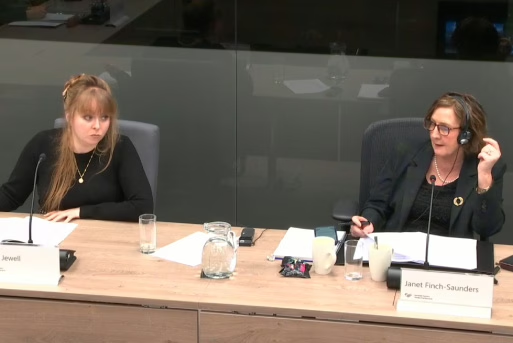
In February, CAN gave oral testimony to the Climate Change, Energy, and Infrastructure Committee (CCEIC) on the Disused Mine and Quarry Tips (Wales) Bill…
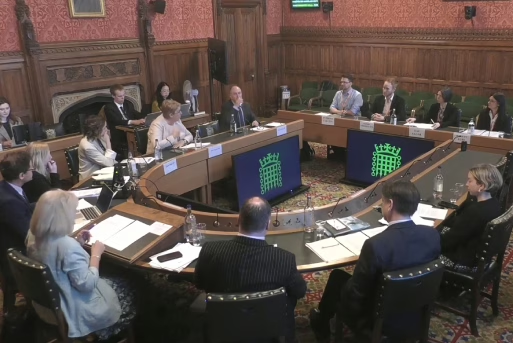
Coal Action Network was invited to attend Westminster where we gave evidence to the Welsh Affairs Committee in their inquiry about the environmental and economic legacy of Wales’ industrial past, alongside Friends of the Earth Cymru. This inquiry was opened in…
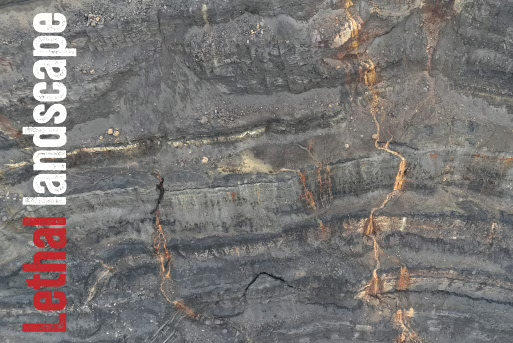
16 years of opencast coal mining in Ffos-y-fran has generated colossal overburden mounds, also known as slag heaps or coal tips. There are three coal tips, with the third being the largest, and cumulatively accounting for 37 million cubic metres of colliery spoil, rocks, and soil…
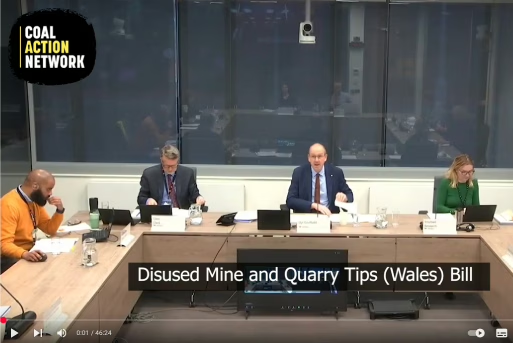
We were invited for the second time to give oral evidence to the Climate Change, Environment, and Infrastructure Committee of the Welsh Parliament (Senedd) on 05th February 2025. We shared the panel with Haf, Director of FOE Cymru, to provide our opinion on the weaknesses, strengths…
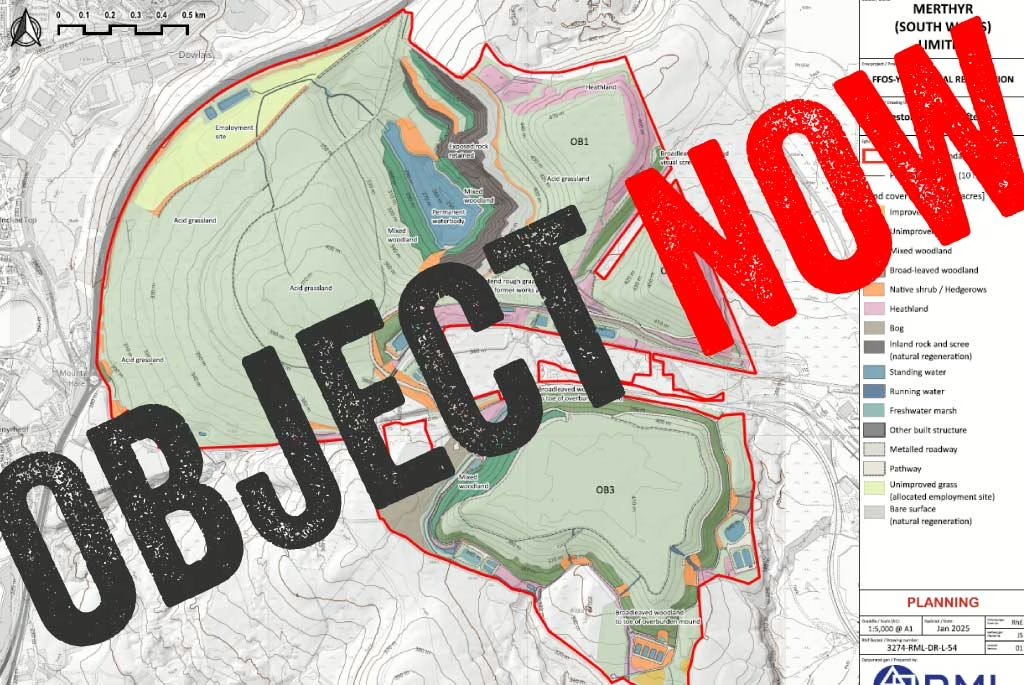
Merthyr (South Wales) Ltd mined for over a year illegally after planning permission for the Ffos-y-fran opencast coal mine ended in September 2022. During that year, it made record-breaking profits due to sanctions on Russia and other factors driving up the price of coal. But rather than using some of the profits from that ill-gotten coal…

MSW claims “It was established that there are insufficient funds available to achieve the 2015 restoration strategy and therefore an alternative scheme is required.” (EIA Scoping Report, July 2024)… To our knowledge, there has been no evidence submitted by MSW that it cannot fund the full restoration it is contracted to undertake…
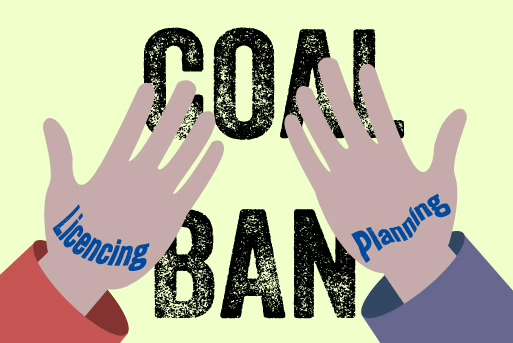
The UK Government launched a consultation on a limited review of the National Planning Policy Framework (NPPF) for 8 weeks from 30 July to 24 September 2024. The NPPF is an influential document that shapes planning decisions and priorities across England. It is periodically updated by the Government, following a public consultation…
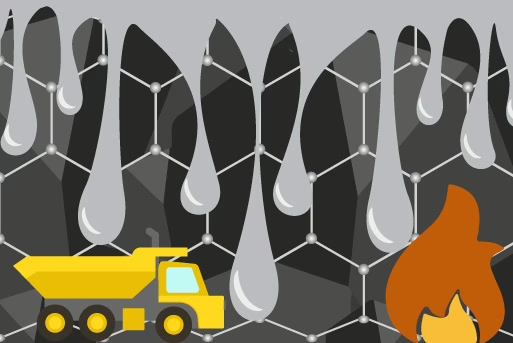
Bryn Bach Coal Ltd attempts to present the anthracite coal it wishes to extract from an expansion of Glan Lash as a unique and scarce commodity that is needed for water filtration, bricks, and graphite, and would therefore be too valuable to burn. Yet, visiting Energybuild Ltd’s…
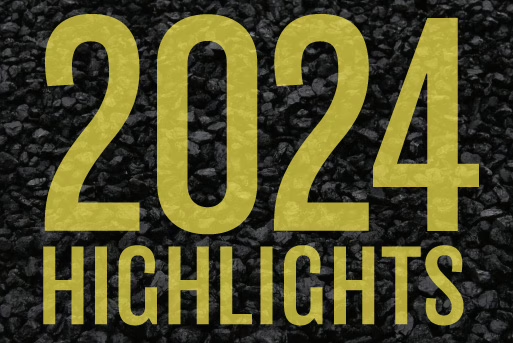
Over the past year, we’ve secured some massive victories. By taking part in our digital actions, supporters sent over 26,000 messages to the UK Government, MPs, Welsh Senedd members, Councillors, and companies to help consign coal to the history books in the UK…